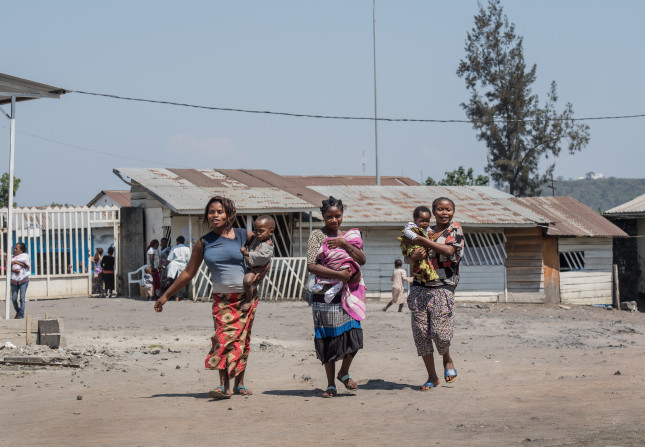-
Safe from the Start: Addressing Gender-Based Violence in Times of Conflict and Crises
›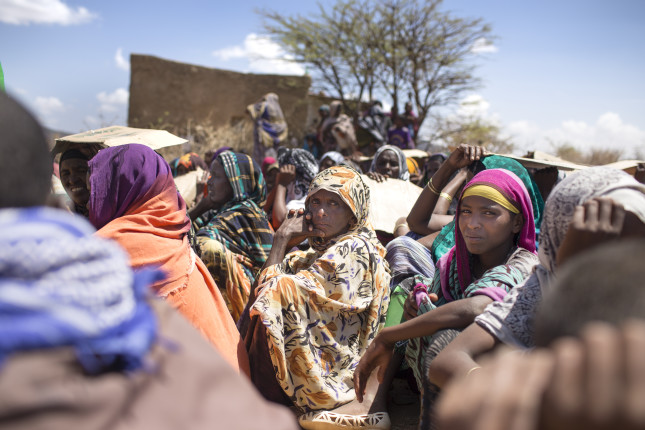
“As a leader in providing global humanitarian aid, the United States must be a leader in protecting all aid recipients,” said Congresswoman Chrissy Houlahan (D-PA-6) at a recent event on Capitol Hill about gender-based violence in humanitarian settings. A violation against human rights, gender-based violence (GBV) is deeply rooted in gender inequality. It’s a global phenomenon that involves sexual, physical, and/or psychological violence, including child marriage, female genital mutilation, and other harmful practices.
-
Which Demographic “End of History”?
› First published 30 years ago in the National Interest, Francis Fukuyama’s landmark essay, “The End of History?,” argued that, with the fall of fascism and communism, no serious blueprint for modern-state development lay open, save for those paths that would ultimately embrace both political and economic liberalism. Over the past two decades, movement toward this ideal end-state has trickled to a halt. Instead, the political elites of Eurasia’s regional powers—Russia, Turkey, Iran, and China—have crafted stable illiberal regimes that borrow whatever they need from free-market economics, electoral politics, nationalism, and religion. Their ascent has produced a form of “non-endpoint stability”—two mutually antagonistic camps: one composed of liberal democracies, the other a mix of illiberal hybrids. As long as these camps remain stable, the international system falls far short of Fukuyama’s theoretical end of history.
First published 30 years ago in the National Interest, Francis Fukuyama’s landmark essay, “The End of History?,” argued that, with the fall of fascism and communism, no serious blueprint for modern-state development lay open, save for those paths that would ultimately embrace both political and economic liberalism. Over the past two decades, movement toward this ideal end-state has trickled to a halt. Instead, the political elites of Eurasia’s regional powers—Russia, Turkey, Iran, and China—have crafted stable illiberal regimes that borrow whatever they need from free-market economics, electoral politics, nationalism, and religion. Their ascent has produced a form of “non-endpoint stability”—two mutually antagonistic camps: one composed of liberal democracies, the other a mix of illiberal hybrids. As long as these camps remain stable, the international system falls far short of Fukuyama’s theoretical end of history. -
Three Trends to Track in Population-Environment-Security
› Exactly 25 years ago the international community met in Cairo for the 1994 International Conference on Population and Development. In the aftermath of the Cold War, ethnic conflict seemed to be exploding globally and research on the role of population growth and resource scarcity found an eager audience among policy makers struggling to understand this new international disorder. ECSP’s founding in that same year positioned the program as a leader in bringing together the scholarly and policy communities around non-traditional security issues over the last 25 years. The last two-and-a-half decades have brought tremendous change in population trends, environmental change, and the security landscape. Over the next 25 years three trends will shape the agenda of those working on the nexus of population-environment-security issues.
Exactly 25 years ago the international community met in Cairo for the 1994 International Conference on Population and Development. In the aftermath of the Cold War, ethnic conflict seemed to be exploding globally and research on the role of population growth and resource scarcity found an eager audience among policy makers struggling to understand this new international disorder. ECSP’s founding in that same year positioned the program as a leader in bringing together the scholarly and policy communities around non-traditional security issues over the last 25 years. The last two-and-a-half decades have brought tremendous change in population trends, environmental change, and the security landscape. Over the next 25 years three trends will shape the agenda of those working on the nexus of population-environment-security issues. -
To Address Security in Africa, Focus on the Citizen: Ambassador Phillip Carter III on the Connections between Development and Security
› To address the security challenges facing Sub-Saharan Africa we need to shift the focus from a concept of state security to one of citizen security, says Ambassador Phillip Carter III (ret.), former Ambassador to the Ivory Coast and the Republic of Guinea, in this week’s Friday Podcast. “Our current strategy of a military response to terrorist organizations or criminal networks is inadequate at best, and probably unsustainable at worst,” says Carter. “To me, the greatest security threat in Africa is poor or bad governance.”
To address the security challenges facing Sub-Saharan Africa we need to shift the focus from a concept of state security to one of citizen security, says Ambassador Phillip Carter III (ret.), former Ambassador to the Ivory Coast and the Republic of Guinea, in this week’s Friday Podcast. “Our current strategy of a military response to terrorist organizations or criminal networks is inadequate at best, and probably unsustainable at worst,” says Carter. “To me, the greatest security threat in Africa is poor or bad governance.” -
CODE BLUE: The Importance of Integrating Care for Maternal Health and Non-Communicable Disease
›
“Non-communicable diseases have been the leading cause of death for women for at least the past 30 years but are often underreported and undertreated,” said Priya Kanayson, Policy and Advocacy Manager at NCD Alliance at a recent Wilson Center event on the impact of non-communicable diseases (NCDs) on maternal health. The event marked the official launch of the Maternal Health Initiative’s CODE BLUE series, developed in partnership with EMD Serono, a business of Merck KGaA, Darmstadt, Germany. Globally, in 2018, 73 percent of deaths among women were due to NCDs, amounting to 18 million women of reproductive age dying per year due to NCDs. The compounding effects of NCDs complicate women’s experiences in many unseen ways, and the rise and gravity of NCDs pose a growing and often overlooked challenge to maternal health worldwide.
-
ICPD25: Quality of Care and Universal Health Coverage Should Be Basic Human Rights
› The Nairobi Summit on ICPD25 was an opportunity for the global community to re-commit to the unfinished objectives of the 1994 International Conference on Population and Development’s (ICPD) Programme of Action and accelerate the progress to achieve the Sustainable Development Goals by 2030.
The Nairobi Summit on ICPD25 was an opportunity for the global community to re-commit to the unfinished objectives of the 1994 International Conference on Population and Development’s (ICPD) Programme of Action and accelerate the progress to achieve the Sustainable Development Goals by 2030. -
ICPD25: I March for Gender Equality
› The Nairobi Summit on ICPD25 came a quarter century after the landmark International Conference on Population and Development (ICPD) was held in Cairo in 1994. Pledges made 25 years ago by 179 countries recognized that human rights, including reproductive rights, were fundamental to development and population concerns. A rigorous Programme of Action was created to reduce maternal deaths, ensure access to family planning, and protect women and girls from gender-based violence, including female genital mutilation and child marriage.
The Nairobi Summit on ICPD25 came a quarter century after the landmark International Conference on Population and Development (ICPD) was held in Cairo in 1994. Pledges made 25 years ago by 179 countries recognized that human rights, including reproductive rights, were fundamental to development and population concerns. A rigorous Programme of Action was created to reduce maternal deaths, ensure access to family planning, and protect women and girls from gender-based violence, including female genital mutilation and child marriage. -
Family Planning in Humanitarian Settings is Achievable and Effective
›
“Family planning saves lives, even in times of crisis,” said Gwen K. Young, Managing Director at the Global Emergency Response Coalition at a Wilson Center event on October 8 on the importance of providing family planning and reproductive health services in humanitarian settings. Speakers from Save the Children, CARE, the International Rescue Committee, and FP2020 spoke to programmatic successes, innovative solutions, and local partnerships in fragile settings. Young highlighted that 1 in 70 people worldwide need humanitarian assistance and a quarter of these are women and girls of reproductive age. All told, more than 30 million women and girls in 42 countries.
Showing posts from category global health.


 First published 30 years ago in the National Interest, Francis Fukuyama’s landmark essay, “
First published 30 years ago in the National Interest, Francis Fukuyama’s landmark essay, “ Exactly 25 years ago the international community met in Cairo for the
Exactly 25 years ago the international community met in Cairo for the 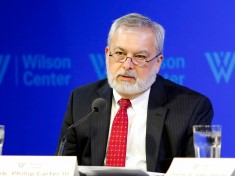 To address the security challenges facing Sub-Saharan Africa we need to shift the focus from a concept of state security to one of citizen security, says Ambassador Phillip Carter III (ret.), former Ambassador to the Ivory Coast and the Republic of Guinea, in this week’s Friday Podcast. “Our current strategy of a military response to terrorist organizations or criminal networks is inadequate at best, and probably unsustainable at worst,” says Carter. “To me, the greatest security threat in Africa is poor or bad governance.”
To address the security challenges facing Sub-Saharan Africa we need to shift the focus from a concept of state security to one of citizen security, says Ambassador Phillip Carter III (ret.), former Ambassador to the Ivory Coast and the Republic of Guinea, in this week’s Friday Podcast. “Our current strategy of a military response to terrorist organizations or criminal networks is inadequate at best, and probably unsustainable at worst,” says Carter. “To me, the greatest security threat in Africa is poor or bad governance.”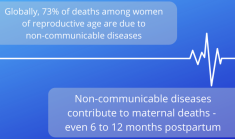
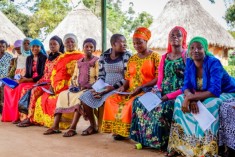 The Nairobi Summit on ICPD25 was an opportunity for the global community to re-commit to the unfinished objectives of the 1994 International Conference on Population and Development’s (ICPD)
The Nairobi Summit on ICPD25 was an opportunity for the global community to re-commit to the unfinished objectives of the 1994 International Conference on Population and Development’s (ICPD) 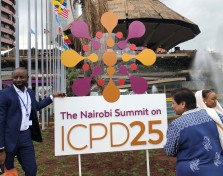 The Nairobi Summit on
The Nairobi Summit on 